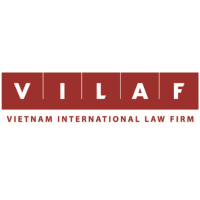

Legal and compliance manager | Roche Vietnam





Mai Phuong Thao
Legal and compliance manager | Roche Vietnam
Team size: Three
What are the most significant cases and transactions that your legal team has recently been involved in?
Our legal department played a crucial role in our company’s strategic transition over the past year. After more than a decade of distribution through authorised agents, our company decided to switch to a direct-to-customer model. This presented substantial advantages in terms of business expansion and cost-effectiveness, but it also presented new legal and compliance challenges.
Our involvement began at an early stage when we were tasked with devising a robust business strategy for this transformation. We conducted exhaustive legal risk assessments, evaluating the advantages and disadvantages of this direct supply model. Among the most important legal considerations were credit risk, the possibility of contract disputes, and the need to comply with external investigations – all of which were previously handled by authorised agents.
To facilitate this transition, we drafted essential legal documents, such as contract templates and forms, in accordance with the new paradigm. Prior to implementation, we conducted extensive due diligence on pilot accounts to ensure that we chose the appropriate clients for the initial phase. To mitigate financial risks, we negotiated sales agreements with credit limit and bank guarantee provisions.
In summary, our legal team effectively facilitated the adoption of this new business model for our company’s initial customer cohort, implementing a variety of risk mitigation measures and bringing a substantial contribution to the company.
Could you share an example of a time when you came up with an innovation that improved how your legal team works and did not come at a large expense?
Our trading company faced challenges in efficiently administering a large number of commercial agreements. In response, we implemented a cost-effective contract management tool that significantly enhanced our workflow without incurring significant costs.
This tool provided functionalities such as a repository for contract templates, contract approval protocols, secure storage for signed contracts, and contract expiration monitoring. Additionally, we collaborated with our affiliated businesses to develop a shared platform, thereby optimising resource utilisation, and further reducing expenses. We also collaborated on a contract management system with other affiliates in terms of sharing and utilisation, which would help for cost savings.
This innovation transformed our contract management lifecycle. It centralised our contract repository, allowing us to manage contracts proactively. During its implementation, our legal team meticulously classified contracts, identified their locations, and evaluated existing management procedures. As a result, the contract drafting and monitoring process was streamlined, allowing us to manage a greater volume of contracts with greater precision.
How do you see the general counsel role evolving in Vietnam over the next five-ten years?
In the next five to ten years, the function of the general counsel will undergo significant change due to the constantly shifting and intricate nature of Vietnam’s legal framework. This transformation requires a multidimensional and strategic approach.
In addition to providing regulatory guidance, the general counsel’s responsibilities must extend beyond traditional legal activities. They should take on greater responsibilities in the areas of corporate governance and sustainability, including actively shaping the company’s strategy, with a strong emphasis on compliance and risk management, while simultaneously ensuring business effectiveness.
Additionally, it is essential for general counsel to interact with the larger legal community and advocate for government policies. This activity not only strengthens their position within their respective organisation but also raises awareness of crucial legal issues, ultimately contributing to Vietnam’s social development.
What are some of the main trends impacting your industry in Vietnam?
The expansion of Vietnam’s economy and population over the past decade has attracted international investors to the country’s healthcare industry. Increased financial support and investment incentives are indicative of the government’s commitment to healthcare development.
Reforms in healthcare are being driven by demographic shifts, resulting in new models of public-private collaboration aimed at enhancing healthcare financing and delivery. The healthcare system is being transformed by partnerships with entities from diverse sectors, including retail, technology, and wellness.
An aging population, a rising middle class, and an increasing burden of chronic diseases are reshaping the healthcare landscape because of demographic shifts. The demand for long-term care services is driven by these trends.
As in-house legal counsel in the healthcare industry, we recognise the importance of understanding these developments and trends. This knowledge enables us to play a crucial role in defining corporate strategy and generating long-term value for our organisation.